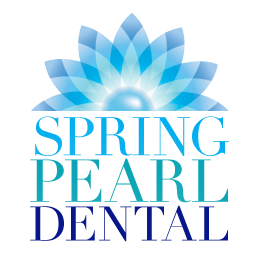Do You Have Bad Breath Even After Brushing?
Let’s talk about what’s really going on
You brush. You floss. You swish some mouthwash. And still… the bad breath lingers.
If that sounds familiar, you’re not alone — and you’re not doing anything wrong. Persistent bad breath, also known as halitosis, can have several causes that go beyond brushing. The good news? Most of them are treatable.
Here’s what might be causing your less-than-fresh breath — and what you can do about it.
What Causes Bad Breath After Brushing?
1. You’re Missing the Tongue
Your tongue is a prime spot for odor-causing bacteria. Even if your teeth are sparkling, a coated tongue can undo all your hard work.
Fix: Gently brush your tongue (or use a tongue scraper) daily to remove buildup and bacteria.
2. Gum Disease
Bad breath can be a symptom of gum disease, especially if it’s persistent and comes with bleeding gums or a bad taste in your mouth.
Gum disease is caused by plaque buildup and bacteria that create inflammation — and odor.
Fix: See your dentist for a gum health evaluation. Professional cleanings and treatment can help reverse the problem.
3. Dry Mouth
Saliva helps wash away bacteria. If your mouth is dry — especially overnight — it can lead to bad breath, even if your hygiene is on point.
Fix:
Stay hydrated
Try sugar-free gum or lozenges to stimulate saliva
Ask your dentist about dry mouth rinses or products
4. Sinus or Throat Issues
If your bad breath smells more “funky” than “food-related,” the source might be above your mouth. Post-nasal drip, sinus infections, or even tonsil stones can cause persistent odor.
Fix: A medical provider can help address the root cause. In the meantime, stay on top of oral hygiene and keep your nasal passages clear.
5. Diet and Digestion
Garlic, onions, coffee, and spicy foods are obvious offenders — but deeper digestive issues like acid reflux can also contribute to breath problems.
Fix: Keep a food journal if you notice patterns, and talk to your doctor if reflux or GI issues are a regular concern.
6. Mouthwash Overload
Using mouthwash too often — especially those with alcohol — can dry out your mouth and make things worse in the long run.
Fix: Switch to an alcohol-free rinse and use it as a supplement, not a solution.
When to See a Dentist
If you’re brushing, flossing, cleaning your tongue, and staying hydrated — but the bad breath is still sticking around — it’s time for a deeper look.
We’ll check for:
Gum infections
Decay or abscesses
Dry mouth
Bite or airway issues
And anything else that could be playing a role
You don’t have to live with it — and it’s often easier to treat than you think.
Don’t Just Mask It. Fix It.
Bad breath is one of those things people are often too embarrassed to talk about — but you shouldn’t be. It’s common, manageable, and treatable with the right care.
If you’re ready to get to the bottom of your breath concerns:
📞 Give us a call or schedule your appointment online.
We’ll help you find the real cause — and the right solution.
